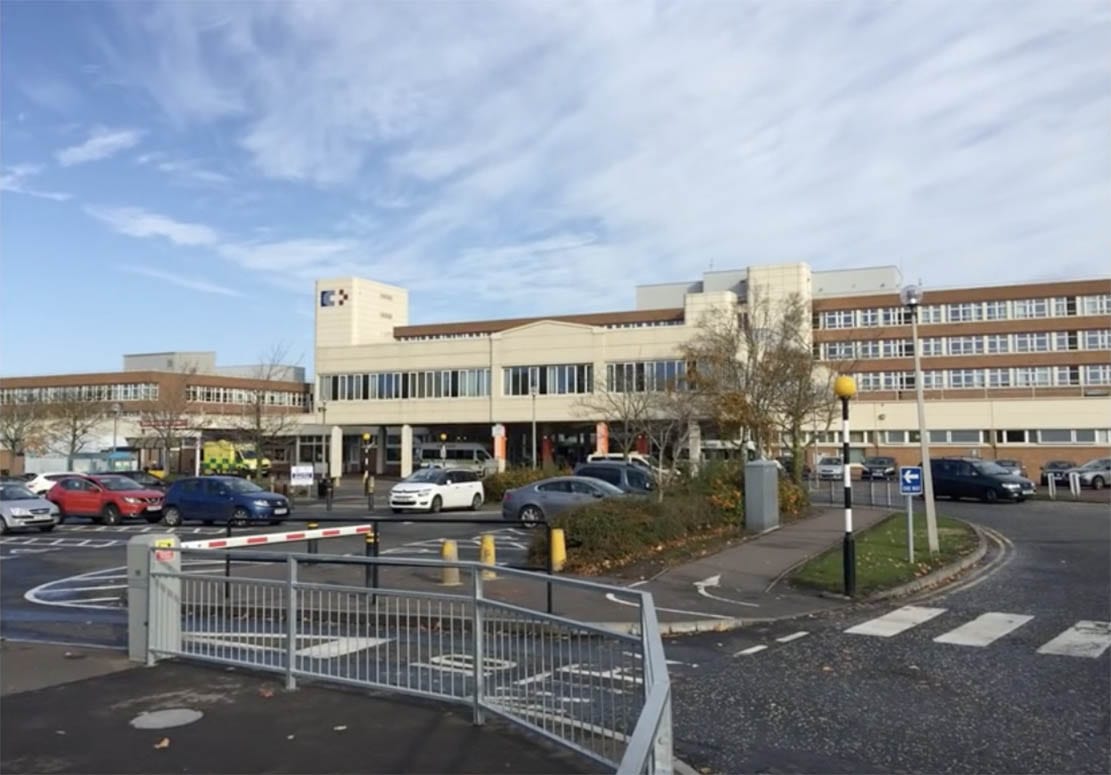
The family of an elderly County Armagh woman admitted to hospital following a fall have criticised the Southern Health and Social Care Trust’s refusal to provide a hospital bed for her home.
Although fit for discharge, there will be a long period of convalescence that is likely to be spent in bed.
The 70-year-old patient suffers from Alzheimer’s and Vascular Dementia, along with osteoporosis, and the bones in her spine are crumbling.
She was admitted to Craigavon Area Hospital on December 3 last after falling from her bed at home, sustaining a spinal fracture.
She then tested positive for Covid-19 and was transferred to a specialist ward.
Two weeks ago, she was moved to a Covid-19 recovery ward in Lurgan Hospital, then on to a rehabilitation ward.
Now ready to go home, a short-term care package has been arranged, for which the relative who is the full-time, unpaid carer is very grateful; however, she doesn’t feel that proper consideration has been given to appropriate health and safety concerns in the long-run.
She explained: “I’m not asking the earth, and we are not seeking to drain the Trust’s resources.
“I know they need to free up the place in the ward for someone else. I’m willing to take on all aspects of care as soon as [the patient] is discharged.
“I’ve been with her every day for the past three years, and sadly, I have seen her deteriorate. I know how she comprehends things, and her memory is very poor.
“Because I can’t visit, I have to ring her every day to remind her why she is in hospital,” she said.
The relative continued: “I can handle the majority of issues but I know putting her into her ordinary divan bed is not going to work.
“For a start, I won’t be able to manoeuvre her properly, and her existing bed is not adjustable.
“The spinal fracture is unstable, and the dementia consultant has warned the next phase will affect the area of the brain which coordinates balance.
“This was her third fall in a year, and she is still in pain from an incident last April, which impedes movement on her left side. The crumbling bones in her spine, not to mention the recent fracture, are very painful.
“I have repeatedly asked for the assessments upon which the refusal to provide a bed is based, and I’m still waiting. It’s just been a flat ‘No’.
“I want her home, and she wants to be home, but I am not satisfied with the procedures ahead of her discharge, to date.
“I want her to have as good a life as she possibly can in the years she has left, and before this awful condition takes more of her from us.
“Carers should not be the silent minority, or seen as ‘upstarts’ when we raise legitimate concerns.
“I know if I put her into a standard divan bed, there will be another fall or an admission for pain relief in a matter of weeks. I certainly don’t want her back in hospital, but I won’t be able to prevent it.
“This is causing me huge concern.”
The carer – who is registered as next-of-kin – gave BBC Local Democracy written permission to put enquires to the Southern Trust, including the precise reason why a hospital bed cannot be provided.
None were answered.
The Trust was also asked what consideration was given to ensuring the patient does not suffer any unnecessary pain or discomfort, including preventing pressure ulcers, and to provide a copy of the risk assessment conducted ahead of discharge.
Finally, the Trust was asked what consideration was given to the concerns of the carer.
A spokesperson replied: “Whilst we do not comment on any individual patient, we encourage any patient, or their family, with concerns about their care and treatment to contact us so that we can directly respond to those concerns.”
This was put to the carer, who said: “Engagement, to date, has been fruitless. I continue to await copies of documents and I remain dissatisfied with the handling of this matter overall.
“I gave written permission for the release of this material, as I wasn’t getting it myself, but the Trust again failed.”
The matter has now been escalated to a formal complaint, and the carer has shared the issue with the NI Commissioner for Older People.





